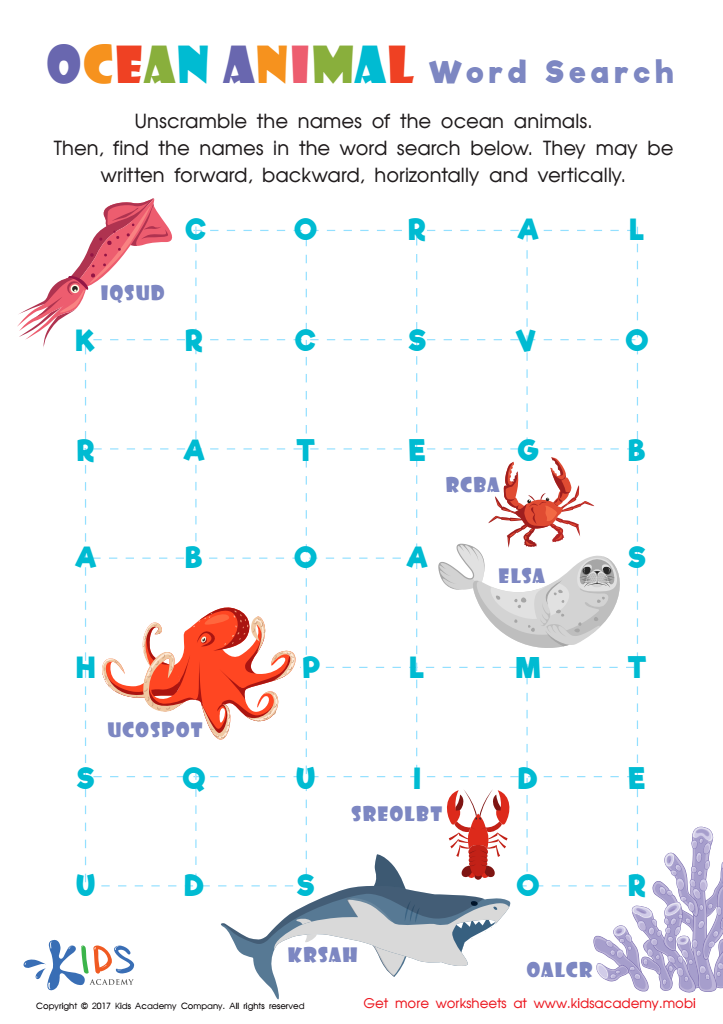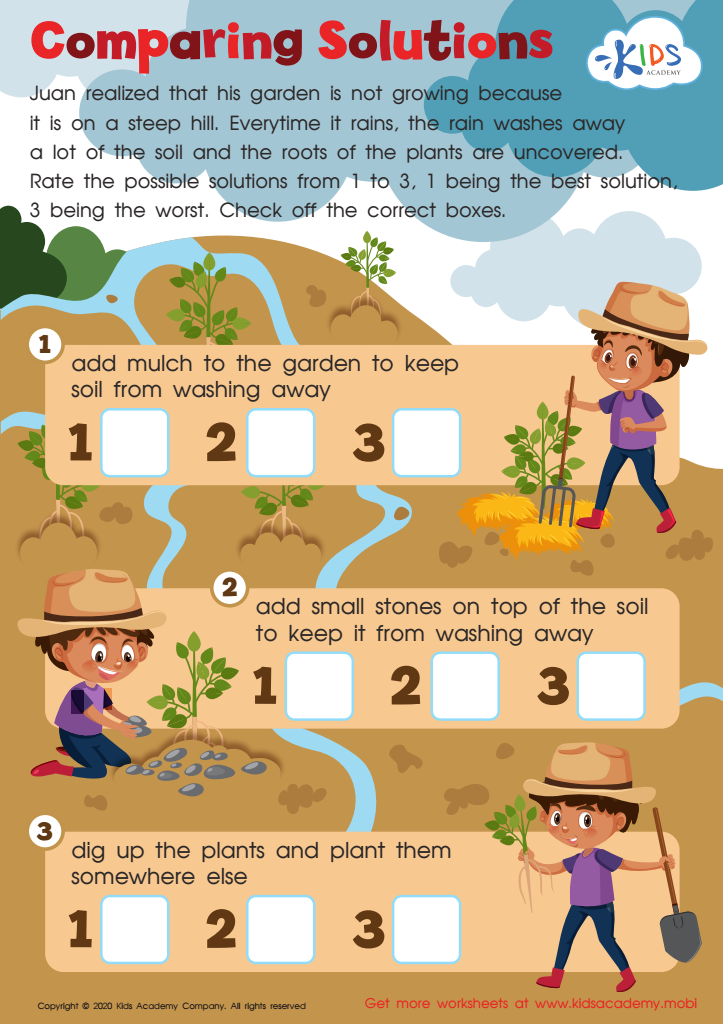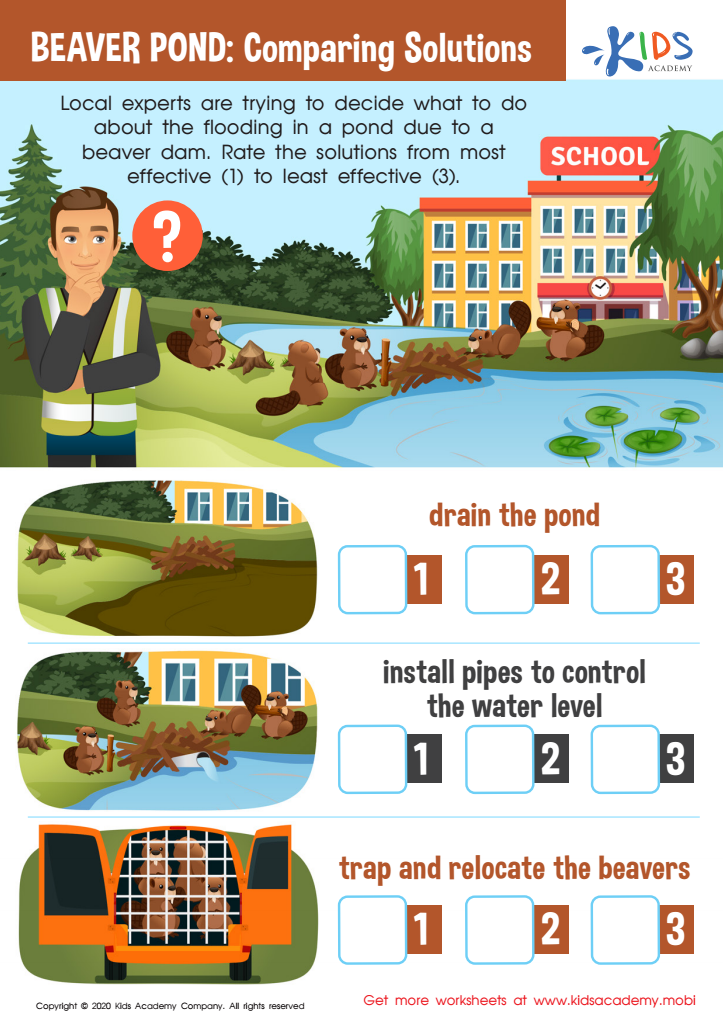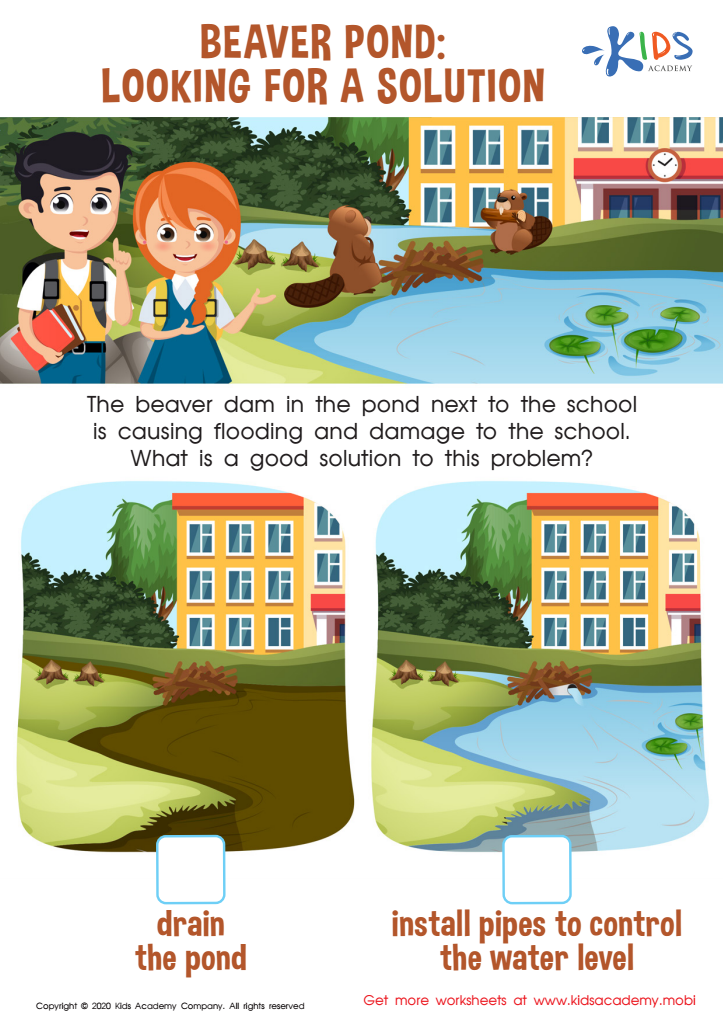Problem-Solving Skills Life Science Worksheets for Ages 3-8
4 filtered results
-
From - To
Unlock the wonders of life science with our engaging Problem-Solving Skills Worksheets, specially designed for children ages 3-8! These thoughtfully crafted activities encourage young minds to explore and investigate the world around them. By integrating problem-solving strategies with essential life science concepts, kids will develop critical thinking skills while learning about plants, animals, and ecosystems. Each worksheet supports early educational growth through fun, interactive exercises that spark curiosity and creativity. Perfect for homeschoolers and classroom settings, our resources empower young learners to become confident problem solvers and enthusiastic explorers of the natural world. Start your child’s adventure in learning today!


Ocean Animals Word Search Printable


Comparing Solutions Worksheet


Beaver Pond: Comparing Solutions Worksheet


Beaver Pond: Looking for a Solution Worksheet
Parents and teachers should prioritize problem-solving skills in life science for children aged 3-8 because these skills form the foundation for critical thinking and effective decision-making. Engaging young learners in life science topics—like the habitats of animals, plant growth, and environmental interactions—encourages curious exploration and inquiry. As children observe and question their surroundings, they naturally develop problem-solving strategies that will serve them throughout life.
Early exposure to life science concepts also promotes creativity; children learn to devise experiments, make predictions, and analyze outcomes. These activities enhance their cognitive abilities, boost confidence, and cultivate a love for science, which is crucial as they advance in their education. Furthermore, understanding scientific principles equips children with the ability to tackle real-world challenges, fostering responsible citizens who can address environmental issues and contribute positively to their communities.
Moreover, problem-solving in life science aligns well with STEM education initiatives, hence preparing children for future academic success and career opportunities. By nurturing these skills early, parents and teachers not only enhance children's intellectual development but also empower them to become innovative thinkers and effective problem solvers in a complex world.
 Assign to My Students
Assign to My Students


.jpg)













